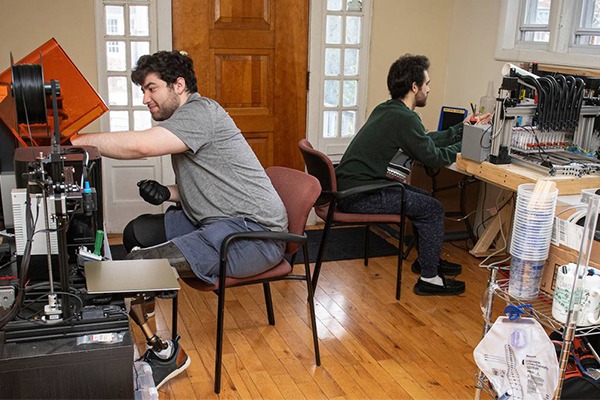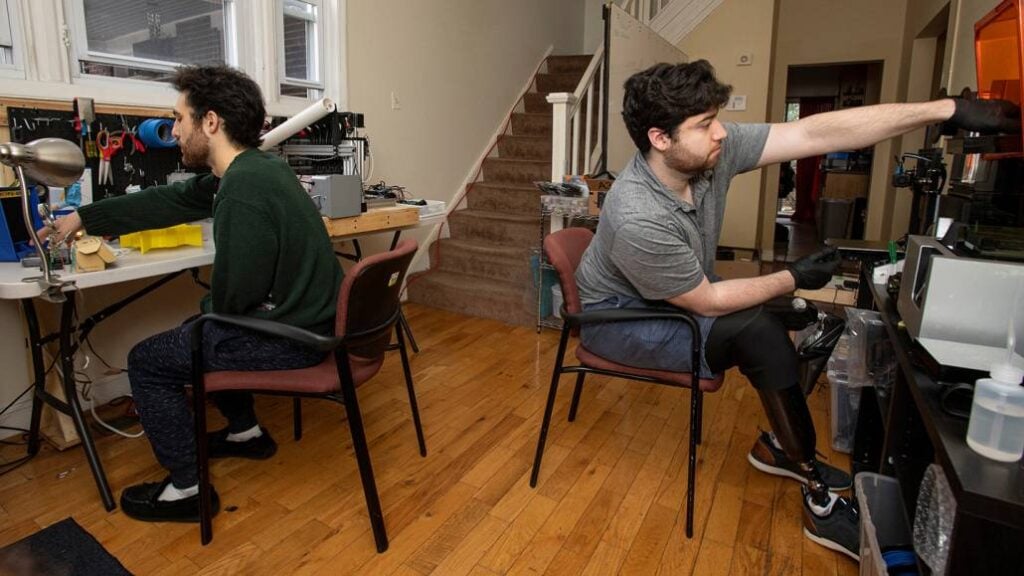For the past six months, the gentle whir of 3D printers has been an ever-present hum coming from the front room of the Charles Village townhouse of seniors Christopher Shallal, Parker Treadway, and Mark Shifman. Day and night, the trio of engineering majors manufactures devices for both fun and play out of their newly built engineering workroom, converting their home into the laboratory of their dreams.
While taking classes remotely last spring, Shallal, a biomedical engineering major, started work with a JHU startup producing 3D printed face shields for frontline workers battling the spread of COVID-19. Because Hopkins’ 3D printing lab had shut down due to social distancing concerns, Shallal was able to move two of the 3D printers stored there to his home and set them up in his living room.
As the summer went on, and Shallal’s work grew, the setup expanded and soon took over the living room of the house. When his roommates, mechanical engineering majors Treadway and Shifman, returned, they realized it wasn’t sustainable to work in the same room where they relaxed and watched TV.
What they needed was a laboratory space dedicated to manufacturing.
Together, the trio did the unthinkable: They packed up their pingpong table, which previously held a place of honor in the entryway of their shared townhouse, and got to work converting the front room into an engineering space robust enough for even the most complex manufacturing task.
They snagged folding tables from Home Depot and a TV stand from the side of the road to create work spaces and places to hold their growing collection of 3D printers and engineering equipment.
They set up mini-cabinets for electronics components and a pegboard for tools, and built a frame for a personal white board that was going to be thrown out by facilities staff at the Wyman building until they claimed it for themselves.


